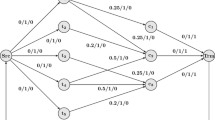Abstract
Classical recommender systems provide users with a list of recommendations where each recommendation consists of a single item, e.g., a book or DVD. However, several applications can benefit from a system capable of recommending packages of items, in the form of sets. Sample applications include travel planning with a limited budget (price or time) and twitter users wanting to select worthwhile tweeters to follow, given that they can deal with only a bounded number of tweets. In these contexts, there is a need for a system that can recommend the top-k packages for the user to choose from.
Motivated by these applications, we consider composite recommendations, where each recommendation comprises a set of items. Each item has both a value (rating) and a cost associated with it, and the user specifies a maximum total cost (budget) for any recommended set of items. Our composite recommender system has access to one or more component recommender systems focusing on different domains, as well as to information sources which can provide the cost associated with each item. Because the problem of decidingwhether there is a recommendation (package)whose cost is under a given budget and whose value exceeds some threshold is NP-complete, we devise several approximation algorithms for generating the top-k packages as recommendations. We analyze the efficiency as well as approximation quality of these algorithms. Finally, using two real and two synthetic datasets, we subject our algorithms to thorough experimentation and empirical analysis. Our findings attest to the efficiency and quality of our approximation algorithms for the top-k packages compared to exact algorithms.
Similar content being viewed by others
Explore related subjects
Discover the latest articles and news from researchers in related subjects, suggested using machine learning.References
Adomavicius G, Tuzhilin A. Toward the next generation of recommender systems: a survey of the state-of-the-art and possible extensions. IEEE Transactions on Knowledge and Data Engineering, 2005, 17(6): 734–749
Weng J, Lim E, Jiang J, He Q. Twitterrank: finding topic-sensitive influential twitterers. In: Proceedings of the 3rd ACM International Conference on Web Search and Data Mining. 2010, 261–270
Kellerer H, Pferschy U, Pisinger D. Knapsack Problems. Berlin: Springer, 2004
Brodsky A, Morgan Henshaw S, Whittle J. CARD: a decisionguidance framework and application for recommending composite alternatives. In: Proceedings of the 2008 ACM Conference on Recommender Systems. 2008, 171–178
Koutrika G, Bercovitz B, Garcia-Molina H. FlexRecs: expressing and combining flexible recommendations. In: Proceedings of the 35th SIG-MOD International Conference on Management of Data. 2009, 745–758
Angel A, Chaudhuri S, Das G, Koudas N. Ranking objects based on relationships and fixed associations. In: Proceedings of the 12th International Conference on Extending Database Technology: Advances in Database Technology. 2009, 910–921
Parameswaran A, Garcia-Molina H. Recommendations with prerequisites. In: Proceedings of the 3rd ACM Conference on Recommender Systems. 2009, 353–356
Parameswaran A, Garcia-Molina H, Ullman J. Evaluating, combining and generalizing recommendations with prerequisites. In: Proceedings of the 19th ACM International Conference on Information and Knowledge Management. 2010, 919–928
Parameswaran A, Venetis P, Garcia-Molina H. Recommendation systems with complex constraints: A course recommendation perspective. ACM Transactions on Information Systems, 2011, 29(4): 1–33
Lappas T, Liu K, Terzi E. Finding a team of experts in social networks. In: Proceedings of the 15th ACM SIGKDD International Conference on Knowledge Discovery and Data Mining. 2009, 467–476
Fagin R, Lotem A, Naor M. Optimal aggregation algorithms for middleware. Journal of Computer and System Sciences, 2003, 66(4): 614–656
Xie M, Lakshmanan L, Wood P. Breaking out of the box of recommendations: from items to packages. In: Proceedings of the 4th ACM Conference on Recommender Systems. 2010, 151–158
De Choudhury M, Feldman M, Amer-Yahia S, Golbandi N, Lempel R, Yu C. Automatic construction of travel itineraries using social breadcrumbs. In: Proceedings of the 21st ACM Conference on Hypertext and Hypermedia. 2010, 35–44
Finger J, Polyzotis N. Robust and efficient algorithms for rank join evaluation. In: Proceedings of the 35th SIGMOD International Conference on Management of Data. 2009, 415–428
Tran Q T, Chan C Y, Wang G. Evaluation of set-based queries with aggregation constraints. In: Proceedings of the 21st ACM International Conference on Information and Knowledge Management. 2011, 1495–1504
Roy S B, Amer-Yahia S, Chawla A, Das G, Yu C. Constructing and exploring composite items. In: Proceedings of the 36th SIGMOD International Conference on Management of Data. 2010, 843–854
Papadimitriou C H. Computational Complexity. Chichester: Wiley, 1994
Ibarra O, Kim C. Fast approximation algorithms for the knapsack and sum of subset problems. Journal of the ACM, 1975, 22(4): 463–468
Vazirani V. Approximation Algorithms. Berlin: Springer, 1999
Marchetti-Spaccamela A, Vercellis C. Stochastic on-line knapsack problems. Mathematical Programming, 1995, 68(1): 73–104
Kimelfeld B, Sagiv Y. Finding and approximating top-k answers in keyword proximity search. In: Proceedings of the 25th ACM SIGMOD-SIGACT-SIGART Symposium on Principles of Database Systems. 2006, 173–182
Lawler E. A procedure for computing the k best solutions to discrete optimization problems and its application to the shortest path problem. Management Science, 1972, 401–405
Jävelin K, Kekäläinen J. Cumulated gain-based evaluation of IR techniques. ACM Transactions on Information Systems, 2002, 20(4): 422–446
Xie M, Lakshmanan L, Wood P. Efficient rank join with aggregation constraints. Proceedings of the VLDB Endowment, 2011, 4(11): 1201–1212
Xie M, Lakshmanan L, Wood P. Comprec-trip: a composite recommendation system for travel planning. In: Proceedings of the 27th International Conference on Data Engineering. 2011, 1352–1355
Chekuri C, Pal M. A recursive greedy algorithm for walks in directed graphs. In: Proceedings of the 46th Annual IEEE Symposium on Foundations of Computer Science. 2005, 245–253
Author information
Authors and Affiliations
Corresponding author
Additional information
Min Xie is a PhD candidate in the Department of Computer Science at University of British Columbia. His supervisor is professor Laks V. S. Lakshmanan and he is a member of the Data Management and Mining Lab. Before coming to Vancouver, he received his bachelor and master degrees from Renmin University of China. His current research interests include database, data mining, personalization and recommender systems.
Laks V. S. Lakshmanan is a professor in the Department of Computer Science at UBC. Laks has published extensively in data management and mining and has served on the PC of all major database and data mining conferences including SIGMOD, PODS, VLDB, ICDE, KDD, and ICDM as member or Vice Chair or General co-Chair. He is an Associate Editor of the VLDB Journal. His current research interests include social networks and media, personalization and recommender systems.
Peter T. Wood obtained his BSc and MSc in Computer Science from the University of Cape Town (UCT), South Africa. He then worked for the Institute for Applied Computer Science at the University of Stellenbosch, before leaving for the University of Toronto where he obtained a PhD in Computer Science in 1989. He subsequently spent nine years as a member of the Department of Computer Science at UCT, before joining the Department of Computer Science at King’s College London in 1998. He moved to the Department of Computer Science and Information Systems at Birkbeck in 2001. His main interest has been in languages for querying data: their design, computational complexity, and optimisation.
Rights and permissions
About this article
Cite this article
Xie, M., Lakshmanan, L.V.S. & Wood, P.T. Composite recommendations: from items to packages. Front. Comput. Sci. 6, 264–277 (2012). https://doi.org/10.1007/s11704-012-2014-1
Received:
Accepted:
Published:
Issue Date:
DOI: https://doi.org/10.1007/s11704-012-2014-1




